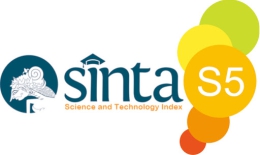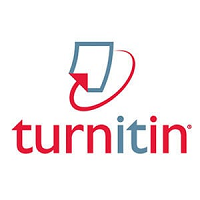LITERASI ZAKAT DAN INTENSI MEMBAYAR ZAKAT HARTA: UPAYA MENDUKUNG PROGRAM SUSTAINABLE DEVELOPMENT GOALS (SDGS)
DOI:
https://doi.org/10.36423/jumper.v6i2.2015Keywords:
Intensi Membayar Zakat, Zakat, Literasi ZakatAbstract
The purpose of this research is to identify the effect of zakat literacy (basic knowledge of zakat and advanced knowledge of zakat) on the intention of MSMEs (muslimpreneurs) to pay zakat in Java. This research used a quantitative method by survey design. The sample is 87 MSMEs (muslimpreneur). The data analysis used multiple analysis regression by SPSS 26. the results were basic knowledge and advanced knowledge of zakat had a significant effect on intention to pay zakat, and zakat literacy had a significant effect on intention to pay zakat. The contribution of this research is practical as a measure to assess the extent of zakat literacy in MSME actors. The theoretical contribution can enrich the relationship between zakat literacy proxied with basic and advanced knowledge and the intention to pay zakat through the theory of planned behavior in MSME (muslimpreneur) in Java. This research is limited to the number of samples and the wide and even distribution of samples.
References
Ajzen, I. (1991). The theory of planned behavior. Organizational Behavior and Human Decision Processes, 50(2), 179–211. https://doi.org/10.1016/0749-5978(91)90020-T
Ajzen, I. (2020). The theory of planned behavior: Frequently asked questions. Human Behavior and Emerging Technologies, 2(4), 314–324. https://doi.org/10.1002/hbe2.195
Al Jaffri Saad, R., & Haniffa, R. (2014). Determinants of zakah (Islamic tax) compliance behavior. Journal of Islamic Accounting and Business Research, 5(2), 182–193. https://doi.org/10.1108/JIABR-10-2012-0068
Antara, P. M., Musa, R., & Hassan, F. (2016). Bridging Islamic Financial Literacy and Halal Literacy: The Way Forward in Halal Ecosystem. Procedia Economics and Finance, 37(December), 196–202. https://doi.org/10.1016/s2212-5671(16)30113-7
Arifin, J., Mubarok, F. K., & Fuadi, N. F. Z. (2022). The Effect of Zakat Literacy, Religiosity, and Income on the Decision to Pay Agricultural Zakat. International Journal of Zakat, 7(2), 115–123. https://doi.org/10.37706/ijaz.v7i2.444
Bulutoding, L., Alwi, Z., & Dwiayuparmitasari, R. (2020). Akhlaq of Zakat Behavior among Determinant Factors of Intention in Malaysia: A Perspective of Prophet Muhammad Tradition. In Journal of Advanced Research in ….
Fishbein, M., & Ajzen, I. (1975). Belief, Attitude, Intention and Behavior: An Introduction to Theory and Research. Contemporary Sociology, 6(2), 244. https://doi.org/10.2307/2065853
Ghaouri, M. H., Kassim, S., Othman, A. H. A., & ... (2023). Behavioural Intention of Zakat Participants Towards the Zakat Fund in Morocco. … International Journal …. https://journal.inceif.org/index.php/ijif/article/view/484
Hasan, S. S. El, & Farisi, M. S. Al. (2022). Determinant Factors of Intention to Pay Zakat, Infaq and Shadaqah in Dompet Peduli Umat Daarut Tauhid. … Journal of Sharia Business …. https://www.jurnal.binamandiri.ac.id/index.php/ijsbm/article/view/85
Kasri, R. A., & Sosianti, M. W. (2023). Determinants of the Intention To Pay Zakat Online: the Case of Indonesia. Journal of Islamic Monetary Economics and Finance, 9(2), 275–294. https://doi.org/10.21098/jimf.v9i2.1664
Mokhtara, S. (2018). The factors associated with Zakat compliance behaviour among employees. International Journal of Economics and Management, 12, 687–696. https://api.elsevier.com/content/abstract/scopus_id/85073480933
Othman, Y., & Fisol, W. N. M. (2017). Islamic religiosity, attitude and moral obligation on intention of income zakat compliance: Evidence from Public Educators in Kedah. In International Journal of Academic Research …. academia.edu. https://www.academia.edu/download/82907856/Islamic_Religiosity.pdf
Pulungan, D. R. (2017). LITERASI KEUANGAN DAN DAMPAKNYA TERHADAP PERILAKU KEUANGAN MASYARAKAT KOTA MEDAN. Ekonomikawan: Jurnal Ilmu Ekonomi Dan Studi Pembangunan, 17(1), 56–61. https://jurnal.umsu.ac.id/index.php/ekawan/article/view/1180/pdf_76
Putri, S., Sudiarti, S., & Harahap, R. D. (2023). Analisis Pemberdayaan UMKM Melalui Filantropi Zakat Dalam Mewujudkan SDGs (Sustainable Development Goals). Al-Kharaj : Jurnal Ekonomi, Keuangan & Bisnis Syariah, 5(6), 3058–3069. https://doi.org/10.47467/alkharaj.v5i6.3757
Sadallah, M., Abdul-Jabbar, H., & Aziz, S. A. (2023). Promoting zakat compliance among business owners in Algeria: the mediation effect of compliance intention. Journal of Islamic Marketing. https://doi.org/10.1108/JIMA-11-2021-0366
Syaksena, A., & Ekawaty, M. (2021). Effect of zakat (almsgiving) literacy level on muzakki’s decision to pay zakat in registered zakat institutions. Journal of Islamic Economics, 3(1), 15–34. https://doi.org/10.21580/jiemb.2021.3.1.8841
Syauqi, M., Anshori, M., & Mawardi, I. (2022). Motivation to Paying Zakat: The Role of Religiosity, Zakat Literacy, and Government Regulations. Al-Uqud : Journal of Islamic Economics, 6(2), 276–294. https://doi.org/10.26740/aluqud.v6n2.p276-294
Yeni, A., & Mukhibad, H. (2020). Muzakki’s Intention in Paying Zakat. AFEBI Islamic Finance and Economic Review, 5(01), 60. https://doi.org/10.47312/aifer.v5i01.436
Yusfiarto, R, Setiawan, A., & Nugraha, S. S. (2020). Literacy and intention to pay zakat. International Journal of Zakat. http://www.ijazbaznas.com/index.php/journal/article/view/221
Yusfiarto, Rizaldi, Setiawan, A., & Setia Nugraha, S. (2020). Literacy and Intention to Pay Zakat: A Theory Planned Behavior View Evidence from Indonesian Muzakki. International Journal of Zakat, 5(1), 15–27.
Zaenal, M. H., Saoqi, A. A. Y., Ikhwan, I., Harmaini, H., Adhiningsih, S. M., Sakinah, M., Fatihaturrahmah, Y., Sosianti, M. W., & Rinanda, N. O. (2022). Kontribusi Zakat, Infak, dan Sedekah terhadap Ekonomi Makro di Indonesia (P. BAZNAS, S. BAZNAS, D. I. B. P. BAZNAS, & D. I. B. P. dan P. BAZNAS (eds.)). Pusat Kajian Strategis – Badan Amil Zakat Nasional (Puskas BAZNAS). www.puskasbaznas.com
Buku (Book):
Hair, J. F., Black, W., Babin, B. J., & Anderson, R. E. (2009). Multivariate Data Analysis (7th ed.). Prentice Hall.
BAZNAS Center Studies. (2019). Zakat Literacy Index, Theory & Concept.
Sumber Internet (Internet Source):
Kementerian KUKM Republik Indonesia. (2019). Data Perkembangan Usaha Mikro, Kecil, Menengah (UMKM) dan Usaha Besar (UB) Republik Indonesia Tahun 2018 - 2019. Kementerian Koperasi Dan Usaha Kecil Dan Menengah Republik Indonesia, 1, 2. https://kemenkopukm.go.id/%0Ahttps://kemenkopukm.go.id/data-umkm/?lywOczCL6zsNoLLuu4NTg206ohN0LhCyJxcxiN39IP37tqBqgY%0A%0Ahttps://kemenkopukm.go.id/uploads/laporan/1650868533_SANDINGAN_DATA_UMKM_2018-2019 =.pdf%0A.
Downloads
Published
Issue
Section
License
Copyright (c) 2024 Gista Rismayani, Agung Praptapa, Eliada Herwiyanti, Puji Lestari

This work is licensed under a Creative Commons Attribution-NonCommercial-ShareAlike 4.0 International License.
The Authors submitting a manuscript do so on the understanding that if accepted for publication, copyright of the article shall be transferred to Jurnal Ekonomi Perjuangan (JUMPER)
This is an open-access journal in accordance with the Creative Commons Attribution-ShareAlike 4.0 International (CC BY-SA 4.0) license.
This permits users to:
Share - copy and redistribute the material in any medium or format
Adapt - remix, transform, and build upon the material for any purpose, even commercially
Under the following terms:
Attribution - You must give appropriate credit, provide a link to the license, and indicate if changes were made. You may do so in any reasonable manner, but not in any way that suggests the licensor endorses you or your use.
ShareAlike - If you remix, transform, or build upon the material, you must distribute your contributions under the same license as the original.
No additional restrictions - You may not apply legal terms or technological measures that legally restrict others from doing anything the license permits.











